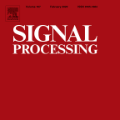This paper introduces a system model called pilot-aided simultaneous communication and localisation (PASCAL) and illustrates its performance in the presence of practical gain and phase imperfections. Specifically, we consider the scenario where multiple single-antenna unmanned aerial vehicles (UAVs) transmit data packets to a multi-antenna base station (BS) that has the dual responsibility of detecting communication signals and localising UAVs using their pilot symbols. Two forms of receiver signal processing approaches are adopted, including disjoint localisation and communication by using maximum likelihood estimation and multiple signal classification (MUSIC), as well as joint localisation and data detection achieved by the newly proposed algorithms. To evaluate the asymptotic localisation performance in the presence of gain-phase imperfections, the Cram\'er-Rao lower bound (CRLB) is derived, while for evaluating the communication's performance, the average sum data rate (SDR) for all the UAVs is derived in closed-form. It is shown that these derived expressions concur with simulations. The results reveal that while the proposed PASCAL system can be sensitive to gain-phase imperfections, it remains to be a powerful and efficient means to achieve reliable simultaneous localisation and communications.
翻译:暂无翻译




